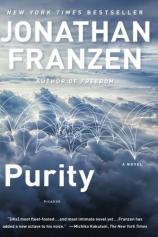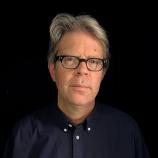Reading Group Guide
Discussion Questions
Purity

Introduction
In PURITY --- an epic novel of youthful idealism and disturbing realities --- the acclaimed author of THE CORRECTIONS and FREEDOM vividly imagines a world of journalists and leakers, Germans and Californians, mega-wealthy titans and homeowners in foreclosure. As she tries to navigate adulthood, Purity “Pip” Tyler embarks on a quest to discover her father’s identity --- and to pay down her $130,000 student-loan debt. Squatting with anarchists in a house in Oakland, she is led to the Sunlight Project, an organization whose goal is to expose the secrets of high-profile hypocrites from around the globe. The project is the brainchild of a charismatic, possibly unhinged provocateur who came of age in East Germany before the fall of the Berlin Wall. As Pip immerses herself more deeply in his group, she tests the limits of her resilience, bringing to light unexpected truths about the quest for truth itself.
A masterwork by one of the major writers of our time, PURITY raises important questions about a broad range of contemporary concerns, from surveillance to sexuality. We hope that the following discussion topics will enrich your reading group’s experience of this daring magnum opus.
Questions and Topics for Discussion
1. From the Sunlight Project to Purity Tyler herself, how is purity defined throughout the novel? Are any of these definitions realistic, or are they steeped in youthful idealism? What is at the root of the characters’ impurities?
2. The epigraph quotes a scene in Goethe’s Faust in which Mephistopheles (the Devil) says, “I am part of that power which eternally wills evil and eternally works good.” How does this notion of simultaneously benevolent and sinister intentions play out in PURITY? Who are the novel’s most powerful characters? How is their power derived: Through secrets? Money? Integrity?
3. How would you have answered Annagret’s questionnaire, featured in the first chapter? What do Purity’s responses say about her?
4. Life in East Germany under the scrutiny of the Stasi is continually contrasted with Western freedoms, yet the West is also a breeding ground for corruption. What does PURITY ultimately tell us about humanity’s capacity to exploit, and to redeem?
5. How are sex and trust interwoven in PURITY? In the novel, is there a difference between the way men and women pursue their desires?
6. Discuss the novel’s images of mothering, especially between Katya and Andreas, Clelia and Tom, and Penelope and Purity. What accounts for the volatility in these relationships?
7. In their quest to expose the truth, are Tom and Andreas equally admirable? Is Leila’s investigative journalism on nuclear warheads more useful than the Sunlight Project’s leaked emails? Are the real-world hackers Julian Assange and Edward Snowden heroes?
8. Was Andreas right to bludgeon Horst on Annagret’s behalf? How do his motivations compare to those of Tom’s father when he rescued Clelia?
9. How did your opinion of Anabel shift as you read about her from different points of view? Is she insane or noble --- or both?
10. Like Purity, the Pip who inhabits Charles Dickens’s GREAT EXPECTATIONS faces quandaries of hidden identities and tainted money. How do the dilemmas of the Information Age compare to those of the past?
11. Under what circumstances would you turn down a billion-dollar trust fund? What do we learn about the characters through their perceptions of money and justice (such as Dreyfuss’s housing situation, which becomes a priority for Purity)?
12. What does the closing scene tell us about irreconcilable differences? What enables Purity to do better than her parents?
13. Which subplots in PURITY give voice to timeless dilemmas? How does the novel advance the notions of fate and obligation explored in Jonathan Franzen’s previous books?
Purity
- Publication Date: August 2, 2016
- Genres: Fiction
- Paperback: 608 pages
- Publisher: Picador
- ISBN-10: 125009710X
- ISBN-13: 9781250097101








